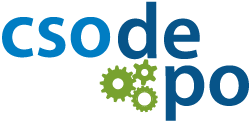Job Opportunity from Strategic Development Agency: Assessment Implementer
The “Skills, Knowledge and Intermediation Development” pilot project is implemented by Strategic Development Agency (SDA) NGO with the support of HELVETAS Swiss Intercooperation-cooperating partner to Sida. The pilot project launched in July 2020 will last for 22 months. The overall goal of the project is to: Enable women and young people, in particular, disadvantaged and excluded ones, to benefit from improved economic opportunities (better income and decent jobs) inclusively and sustainably.
The project aims to improve the partnership between employers, non-formal training/career orientation service providers and job seekers (especially young people and women). The cooperation between the various market players and effectively functioning skills development system in general will help to reduce unemployment and create more and diverse opportunities for unemployed youth and women.
In this regard, SDA will seek to facilitate availability and better access to improved and relevant non-formal training offers, as well as strengthened and diversified intermediation services. In the two sectors of tourism/hospitality and agriculture/agribusiness, the pilot will work with nation-wide business associations, federations, private and public skills, knowledge and information providers to offer more accessible, relevant and quality skills, knowledge and information in collaboration with employers.
“Skills, Knowledge and Intermediation Development” pilot project applies Market System Development (MSD) approach. The project will adopt the main components of MSD intervention process corresponding to the main stages of the project cycle. The main objective of the project based on the MSD approach is to produce systemic changes in the markets in an effective and sustainable manner. The aim of the approach is to have an impact reaching beyond the group of beneficiaries or communities that have been selected for the project.
Job responsibilities
The main objective of this assignment is to assess the level of collaboration between non-formal skills development and intermediation service providers and employers engaged in the pilot project implemented by SDA.
In this regard the contractor should conduct assessment which should include but not limited to:
- Brief summary of the non-formal training market in tourism/hospitality and agriculture/agribusiness sectors; main actors of the market and existing collaboration between them before the project started;
- Business models’ description for each partnership (before pilot / current);
- The mapping of engaged formal and non-formal training providers - geographic significance or concentration;
- The mapping of engaged private sector - geographic significance or concentration;
- Capacities of the training providers to develop new skills training programs/learning methodologies;
- The description of the approach on which training providers are based to develop new programs/learning methodologies (partnership with private sector);
- Training programs and learning methodologies description (why/how are they different);
- Intermediation channels used (why/how it is different);
- Changes in the incentives and relationships between different players;
- How do employers assess the usefulness of the trainings;
- Future growth potential and opportunities;
- Main issues/gaps and challenges identified (lessons learnt);
- Conclusion and Recommendations. Possible solutions for improvement of co-operation between engaged market actors.
Collaboration assessment should employ qualitative methods including face-to-face interviews, expert interviews and focus group discussions. To gather necessary information appropriate assessment tools will be used (such as interview guides, focus group discussion guide, etc.) approved by the SDA. In case of necessity, meetings may be organized several times for collecting comprehensive and reliable information. For more information about TOR please find the following link.
Required qualifications
Qualifications and skills
- Bachelor's or Master's degree in Social Sciences, Business Administration, Economics or a relevant discipline;
- Excellent team management skills, communication and facilitation skills;
- Insight knowledge and understanding of non-formal education and skills & knowledge development sectors.
Professional experience
- At least 5 years of experience in working in educational and relevant projects.
- In conducting assessments qualitative researches of a comparable size and scope.
Required candidate level: Senior
Additional information
Interested candidates are welcome to send the below-mentioned package together with a cover letter till 25th February 2022 to [email protected] indicating the position title "Assessment Implementer" in the subject line of the email.
The submitted package will include:
- CV
- Brief about the similar experience;
- Timeline of all activities;
- Financial proposal
